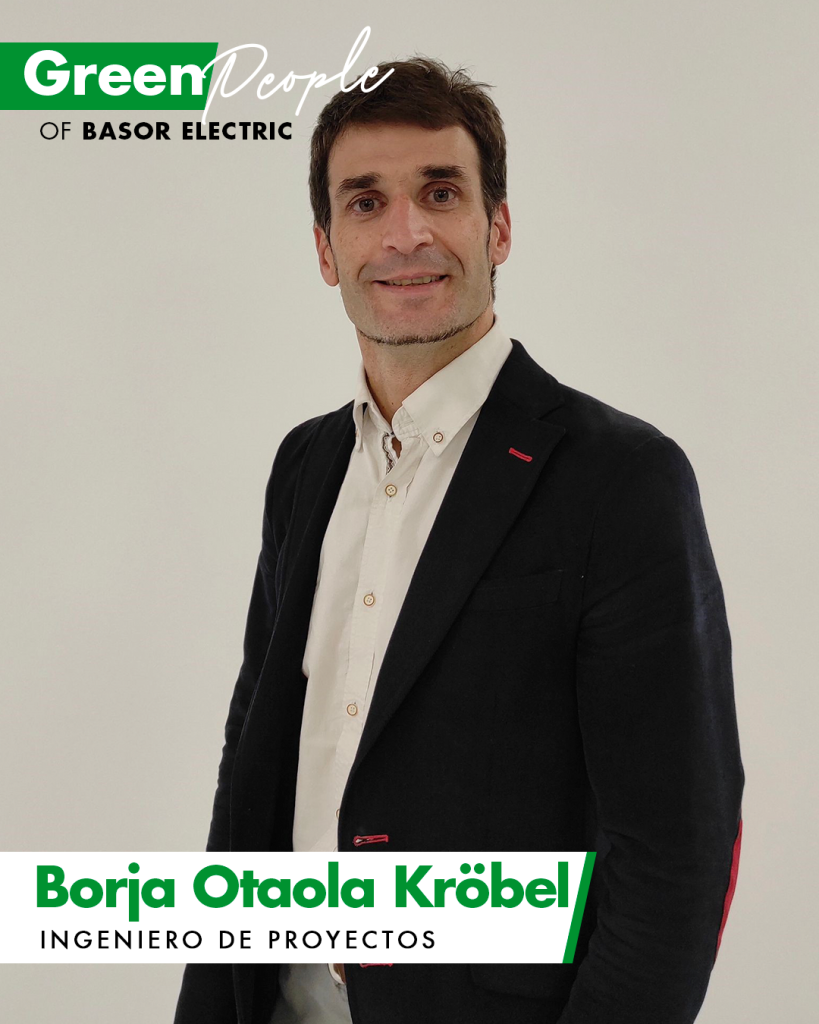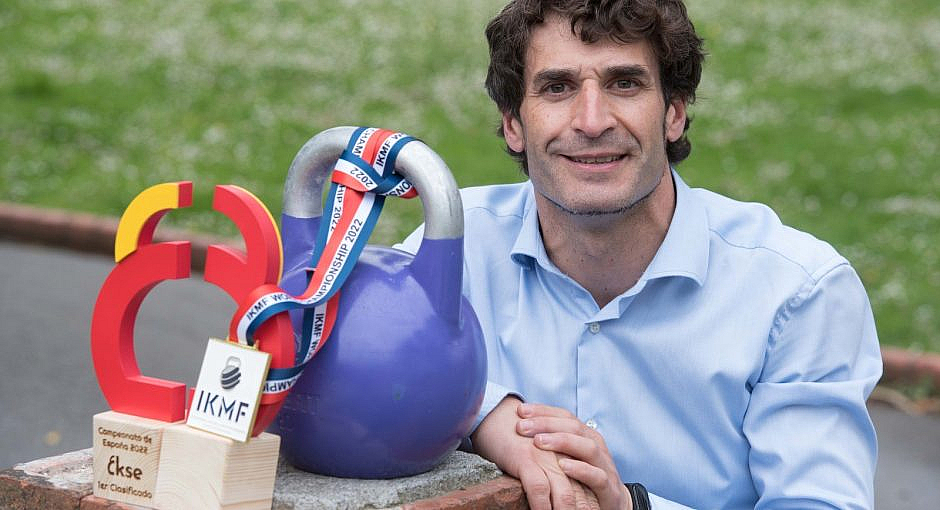This month, we step out of our headquarters to interview Borja Otaola, a project engineer at Basor Electric.
Although he has been with Basor for less than a year, Borja brings over 18 years of experience in sales, which has allowed him to develop key skills in project management and customer relations. However, his journey extends beyond the professional field—he has also achieved great success in sports, becoming a world champion in kettlebell lifting.
Today, he shares his key insights on achieving excellence both at work and in sports, as well as how to stay motivated at all times.
Hello Borja, first of all, tell us how your onboarding at Basor has been.
My integration into Basor has been much better than I initially expected. Whenever you start a new professional project, you set positive expectations regarding the welcome and your colleagues. In this case, my experience has far exceeded them. From day one, I felt at home.
My experience with my colleague Patxi Ballesteros, from the Northern delegation, as well as with those I met at headquarters during my initial training, the factory visit, and recently at the sales convention, has been very positive and pleasant. In fact, I feel like I have been part of Basor for many years.
I have always received support for my inquiries regarding products, company processes, orders, shipments, factory operations, and marketing.

What does your role as a project engineer entail?
Our work covers many areas, but always under the same philosophy: helping clients find the most suitable solution to channel and protect cables in installations and projects. Properly advising on cable management is essential to ensure the long lifespan of a building or industrial facility.
To do this, we must consider the type of installation, the nature of the building or industry, the surrounding environment, the paths the cables will follow, and, most importantly, the applicable regulations.
A public facility, a photovoltaic installation, a wastewater treatment plant, or a chemical plant each have specific requirements. Based on these parameters, we advise clients on open systems (cable trays) or closed systems (trays with covers or conduits) to provide greater cable protection. Support and fastening systems, as well as proper sizing, are also essential to ensure installation flexibility.
The most interesting part of our job is that, regardless of the issue an installer or project engineer may face, we can provide them with a solution.
The biggest risk factor in any installation is the cable itself, and our role is to help with its routing and protection.
We know that being part of the sales team is a fast-paced role. What does a typical day at work look like for you?
It is indeed busy and highly varied. I believe it’s essential to plan routes and visits on a monthly and weekly basis. Once we identify the area we will be working in, we continue by scheduling visits to installers and engineering firms. We know that in-person meetings with customers are crucial for presenting product samples, introducing new developments, and advising on relevant regulations.
We also use these trips to visit construction sites, both those we are already working on and new ones we identify. Site visits provide valuable information, such as which engineering firm designed the project, what type of materials are specified, and which installer will execute the work.
From these visits, we often identify customer needs and prepare material proposals. At this stage, we coordinate with the quotation department to define and adjust the necessary materials and submit offers. However, our job doesn’t end there. We must follow up on these opportunities, projects, and trials to ensure everything runs smoothly.
Throughout the year, we also organize showroom events at distributors, training sessions, and technical talks for industry professionals. These events help promote the company and showcase our solutions.
Additionally, listening to the market’s needs and future trends is crucial. We relay this feedback internally to our product department so that we can quickly launch new products, modify existing ones, or identify new market niches.
With your extensive experience in sales, what skills do you consider essential to succeed in this field?
Many years ago, I learned that attitude is what makes the difference—especially in sales.
You can have extensive product knowledge and sales skills, and these are important. However, it is your attitude that multiplies your chances of success. A positive and proactive mindset keeps you moving forward in challenging moments, such as crises or rejections.
Another essential skill is perseverance. Some market niches may be strongly aligned with specific brands, but that doesn’t mean we should give up in the long run. Sales is a marathon, not a sprint. A consistent and steady pace over time is far more effective than intense but short-lived efforts.
Finally, active listening is crucial. Listening to customers, listening to the market, and understanding needs allows us to offer real solutions that add value.
Balancing high performance in both sports and work isn’t easy. What strategies do you use to stay motivated and focused in both areas?
Great question… hahaha! To be honest, it is challenging.
When it comes to training as a health habit, it’s relatively easy to manage. Once you make it part of your routine, even 10, 20, or 30 minutes a day is enough to feel good.
However, when you shift towards high performance and its demanding nature, it becomes more complicated. I focus heavily on the mental aspect, visualizing objectives, and finding a purpose.
When you understand why you do things, everything becomes easier. Motivation is great, but you need more than that to stay consistent over time.
- In sports, I channel my efforts into being an inspiration to others and my family.
- In my professional life, I find purpose in helping people improve their installations.
These factors drive discipline and consistency in everything I do.
Of course, you also have to prioritize and be aware of your current situation. Right now, I had to withdraw from the Spanish Championship due to timing and my current form. But that doesn’t mean I’m stopping—I’m still competing in the 2025 National League and continuing my training.
I’m still in the Veterans category (40-49 years old), so who knows what the future holds?
Thank you, Borja, for your time and inspiring words.
It was a pleasure hearing your insights, and we’re sure they will inspire many others.



